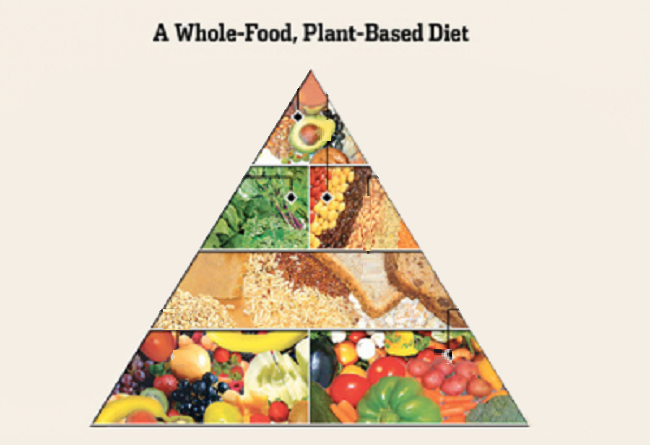Nutritional experts of the 2015 Dietary Guidelines Advisory Committee recommend a predominantly plant-based diet for health and environmental reasons.
As was recently shared in the article, “8 Nations Going Vegetarian, Proving To The World Less Is More,” a massive shift in health mentality is inspiring people everywhere to invest in their health. In 2010, the UN released a report urging citizens to adopt a plant-based diet for health and environmental reasons. Who knew that earlier this year, the 2015 Dietary Guidelines Advisory Committee would outline similar recommendations for American citizens?
The report, released earlier this year, includes recommendations by the 2015 Dietary Guidelines Advisory Committee on what Americans should be eating. This is the first time the committee has concluded a diet higher in plant-based foods and low in animal-based foods to not only be both healthier for the body, but better for the environment.
The report details their official recommendations for a “healthy dietary pattern,” which has vegetables, fruits, and whole grains at the very top of the list and red meat and processed meats at the very bottom.
“The overall body of evidence examined by the 2015 DGAC identifies that a healthy dietary pattern is higher in vegetables, fruits, whole grains, low- or non-fat dairy, seafood, legumes, and nuts; moderate in alcohol (among adults); lower in red and processed meats; and low in sugar-sweetened foods and drinks and refined grains.”
The 571-page report gives an in-depth look at what Americans are presently eating. “The quality of the diets currently consumed by the U.S. population is suboptimal overall and has major adverse health consequences,” it states.
Most notable is the large gap between a healthy diet and the standard American diet: “On average, the U.S. diet is low in vegetables, fruit, and whole grains, and high in sodium, calories, saturated fat, refined grains, and added sugars.”
Earlier this year it was reported that only 9% of American adults manage to consume the recommended amount of daily fruits and vegetables. Despite the bounty of healthy living resources and information available, America’s greatest challenge may be overcoming the idea of ‘quick fixes’ and short-term solutions.
The committee’s findings on the Standard American Diet include:
- Roughly half of American adults have one or more chronic diseases related to poor diet and inactivity
- Preventable diseases include cardiovascular disease, hypertension, type 2 diabetes, and some cancers
- More than two-thirds of American adults are overweight or obese
- Nearly one-third of children are overweight or obese
- Chronic diseases disproportionately affect low-income communities
- Focus on disease treatment rather than prevention increases and strains health care costs and reduces overall health
Amazingly, this is also the first time the committee has included environmental sustainability in its recommendations. It is mentioned that a diet lower in animal foods is not only healthier for the body, it’s better for the environment:
“Quantitative modeling research showed how healthy dietary patterns relate to positive environmental outcomes that improve population food security. Moderate to strong evidence demonstrates that healthy dietary patterns that are higher in plant-based foods, such as vegetables, fruits, whole grains, legumes, nuts, and seeds, and lower in calories and animal-based foods are associated with more favorable environmental outcomes (lower greenhouse gas emissions and more favorable land, water, and energy use) than are current U.S. dietary patterns.”
The federally appointed panel is comprised of nutritional experts, and their recommendations help to put policies in place to ensure American eat healthier. Their task is to help set standards for school lunches, food stamp programs, and other programs for children and pregnant women.
By at Amanda Froelich at True Activist
